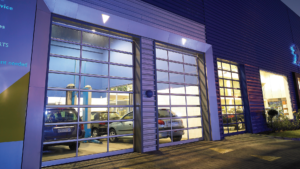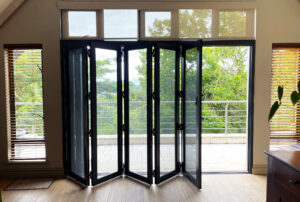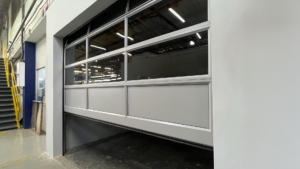Choosing a safe neighbourhood to live in is important for the security of your family. South Africa ranked a low 130th out of 163 countries on the Global Peace Index for 2023. But home safety is still achievable with the right approach. Follow these 14 safety tips to find a home in an area that is as safe as possible, with like-minded citizens.
Safety Signs to Look for When Considering a New Neighbourhood
Check the crime rate
A good way to understand an area’s safety is to look at its crime rate. You can easily check this information through public records or websites with data on crimes in specific areas.
Try the ISS (Institute for Security Studies) with maps showing crime rates, such as by police station. Or use the SAPS (SA Police Servies) crime stats to check which police stations report the most crimes. These statistics will give you a good idea of areas to avoid.
Choose safe areas to live
When choosing where to live, search for areas with high security and low crime rates. In South Africa, cities like Cape Town, Bloemfontein, Gqeberha (Port Elizabeth), Johannesburg, Durban, and Pretoria, safer neighbourhoods are often in gated communities or residential complexes.
Smaller towns like Hermanus, George, Plettenberg Bay, Jeffrey’s Bay, Mossel Bay, Knysna, and the West Coast area also offer safety in secure estates. They may have areas with strong neighbourhood watch groups where people share security and crime information and work together to keep their area safe.
Pricing predictability
To predict if a home will hold its value in the long run, check how it has performed over time. Sale prices of similar properties in the area can also give you an idea of how home prices will change in good and bad economic times. Your property agent should be able to share this information with you.
Does the area have watch groups?
You’ll often find watch groups in neighbourhoods where people care about safety. These groups are made up of residents that help to prevent crime in their area. They patrol the streets and report any suspicious activity to the police. They work together with residents on safety concerns raised by members and find ways to resolve them.
Safe proof your house
Before buying a new home, check whether the previous owners invested in safety measures. Is there a video doorbell? Are there burglar bars, safety gates, and alarms featuring motion sensors? Is there an electric fence, CCTV cameras, and automatic gates?
If not, consult a security expert from a reliable company like Trellidor. Find out what needs to be done and how much this will cost so that you know how to budget and plan for safe living.
Rate of home ownership
Find out the rate of home ownership in the suburb you like. Your estate agent should have this information but if not, check online property websites. A higher percentage of owner-occupied homes means residents are likely to invest in property upgrades over time. The improvements add value to the neighbourhood, promote a strong sense of community, and show that there is interest in keeping the neighbourhood safe.
Pick where proper public transport is available
If you rely on public transport, check what is available in the neighbourhood you are considering. Are there bus or taxi stops nearby with good street lighting? Do reliable, safe e-hailing taxi services operate in the area? Are there safe train services nearby? What about access to the local airport?
Test your future walking routes
Take a stroll around your future neighbourhood at various times of the day. This will help you see how secure you’ll feel walking home from places like shops or public transport stops. You will also be able to find out what the traffic is like at different times.
Ask your property agent or local people in the around about the safety of cycling and walking paths at night. Pay attention to street lighting and CCTV cameras. Don’t do this on your own if the area is poorly lit, has isolated roads or groups of people that make you feel nervous.
Constant presence of police
A neighbourhood with police visible all the time may raise concerns about frequent crime incidents. While this is generally a red flag, it’s important to consider that police might also be conducting routine patrols in different areas, keeping residents safe. It could also show that the local police service responds quickly to calls and incidents in the neighbourhood.
Get to know your potential neighbours
This is a great way to assess the safety of the area. Ask them about any issues in the neighbourhood and check if there’s a local Neighbourhood Watch group. These community-based crime prevention groups provide valuable insight into local crime and contribute to a safer community.
Future growth and development
Think about the future growth and development of the area. Is it a growing neighbourhood that is well cared for, clean and tidy? Or is it showing signs of age, with uncared for common areas such as streets and parks, and no new homes being built?
Historical value
Explore the history of the community as it can provide insight into the future. Neighbourhoods with long-time residents and established businesses often cherish their history and take pride in preserving the area’s character. Talk to people in the area to understand the community.
Connect with your property agent
Property agents usually know the areas they work in well. You may be able to find facts and statistics about the neighbourhood, but your agent has the useful insider information. They can help you make a well-informed decision and ensure you choose a location where you feel safe and comfortable.
The number of houses up for sale
Pay attention to the number of ‘For Sale’ boards around the neighbourhood. The fewer houses on the market, the better. A high number of houses for sale may be a sign that people are leaving the area to escape crime. There could be other reasons, like a market downturn, but it’s always a cause for concern and something to be cautious about.
In conclusion, even if you do all this homework, it is impossible to guarantee that you will be completely safe in your new home and neighbourhood. Doing a thorough check on the safety of the area will, however, give you a good idea of what it will be like to live there. And if you are still worried about home security, get help and advice from people that know the area well, like the staff at your local Trellidor outlet.



